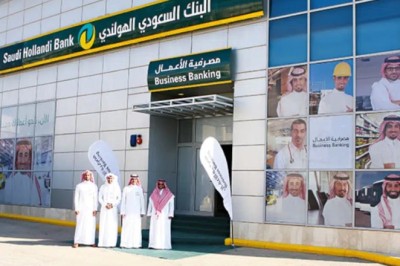
The Power of SMEs in Saudi Arabia’s Economic Growth
Saudi Arabia’s economic transformation, spearheaded by Vision 2030, places SMEs at the heart of its diversification strategy. The kingdom’s ambitious plan aims to reduce dependency on oil revenues by enhancing private sector contributions and creating a fertile ground for entrepreneurship. For SMEs, which already make up over 99% of the total business landscape and employ over half of the private sector workforce, this is a golden age for growth, with the government rolling out support mechanisms ranging from funding initiatives to regulatory reforms.
Why SMEs Are Vital to Saudi Arabia’s Vision 2030
The focus on SMEs under Vision 2030 aligns with a broader goal: reducing reliance on hydrocarbons by fostering a thriving and diverse economy. SMEs play a crucial role in this vision because they:
- Diversify the Economy: SMEs contribute to sectors beyond oil and gas, such as technology, healthcare, tourism, and entertainment, aligning with Saudi Arabia’s goals for economic diversification.
- Create Jobs: With a young population and rising youth unemployment rates, SMEs provide much-needed job opportunities, helping to integrate Saudi nationals into the workforce.
- Fuel Innovation: SMEs are agile and innovative, often leading the way in adopting and developing new technologies, which is vital for the kingdom’s technological advancement goals.
These contributions explain why Vision 2030’s targets for SMEs include raising their GDP contribution from 20% to 35% by 2030.
Key Growth Sectors and Opportunities for SMEs in Saudi Arabia
1. Technology and Digital Transformation
- Overview: With the kingdom advancing in tech adoption, sectors such as artificial intelligence (AI), cybersecurity, fintech, and e-commerce are booming.
- Opportunities: SMEs can leverage opportunities to partner with larger companies or government projects, such as those in NEOM and Qiddiya, where technology innovation is key.
- Support: The Saudi Federation for Cybersecurity, Programming, and Drones has introduced initiatives for digital startups, and programs like Fintech Saudi offer a robust network and resources.
2. Tourism and Entertainment
- Overview: The Saudi government’s ambitious targets for tourism include attracting 100 million annual visitors by 2030, creating an ecosystem ripe for SMEs in travel, hospitality, and entertainment.
- Opportunities: SMEs can explore opportunities in adventure tourism, boutique hospitality, event planning, and cultural experiences.
- Support: Initiatives such as the Red Sea Project and Diriyah Gate offer platforms for SMEs to participate in the development of tourist sites, creating growth opportunities for service providers, suppliers, and technology partners.
3. Renewable Energy
- Overview: As part of Vision 2030’s sustainability goals, Saudi Arabia is heavily investing in renewable energy projects, aiming for 50% of its energy to come from renewables by 2030.
- Opportunities: SMEs specializing in solar technology, wind energy, and energy-efficient solutions have significant potential in the local market.
- Support: Programs like the Saudi Industrial Development Fund (SIDF) offer specific funding for green projects, providing a pathway for SMEs to enter the renewable energy sector.
Government Initiatives and Financial Support for SMEs
Saudi Arabia’s government, through initiatives like the Small and Medium Enterprises General Authority (Monsha’at), actively supports SMEs. Monsha’at’s initiatives cover financing, training, and resources, making it easier for SMEs to start and grow. Key initiatives include:
-
The Kafalah Program: This government-sponsored program guarantees up to 85% of loans for SMEs, encouraging banks to finance small businesses that might otherwise struggle to secure loans. Kafalah has seen success with SMEs in various sectors, including retail and manufacturing, proving instrumental for businesses with limited access to traditional financing.
-
Saudi Venture Capital Company (SVC): SVC facilitates venture capital and private equity funding for startups and SMEs by co-investing with other VCs and funds, particularly in tech-focused sectors.
-
Monsha’at Academy: Providing training and development resources, this academy offers free courses on topics ranging from digital transformation to finance management. These resources are invaluable, especially for SME owners looking to upskill their teams.
-
Accelerators and Incubators: Programs like Misk Innovation and Badir provide seed funding, mentorship, and workspace for early-stage startups. These accelerators have helped hundreds of businesses launch successfully, focusing on growth sectors like AI, IoT, and renewable energy.
Challenges Facing Saudi SMEs and How to Overcome Them
Despite the support, Saudi SMEs face challenges including:
- Navigating Bureaucracy: While reforms have streamlined processes, some regulatory hurdles remain. SMEs can benefit from online platforms such as Monsha’at’s Business Clinic, which offers resources and guidance on regulatory compliance.
- Access to Talent: With a shortage of skilled professionals in certain sectors, SMEs face difficulties in recruiting and retaining talent. To combat this, SMEs should consider remote work options and invest in partnerships with local educational institutions for internships or apprenticeship programs.
- Cash Flow Management: Ensuring sufficient cash flow remains a hurdle, especially in industries with long sales cycles. Using financial management tools or hiring a fractional CFO can be viable solutions for managing finances more effectively.
Practical Tips for Aspiring Entrepreneurs in Saudi Arabia
Here are some strategies to capitalize on Saudi Arabia’s supportive SME ecosystem:
- Prioritize Local Partnerships: Collaborating with local suppliers and partners can help streamline operations and strengthen business networks. Building relationships with government-backed organizations and other SMEs can provide long-term advantages.
- Leverage Digital Marketing: With over 90% of Saudis active on social media, digital marketing offers a cost-effective way for SMEs to reach target audiences. Platforms like Instagram, Twitter, and LinkedIn are ideal for brand building and customer engagement.
- Be Data-Driven: For any business to thrive, data-driven decisions are crucial. Use local insights to understand customer preferences and to tailor your offerings accordingly. Saudi Arabia’s rapidly growing e-commerce sector is highly competitive, and leveraging data can set you apart.
Looking Ahead: Future Growth Trends for Saudi SMEs
As Saudi Arabia continues on its Vision 2030 journey, SMEs are likely to experience an evolving landscape filled with opportunities across various sectors. Emerging trends include:
- Increased Digitalization: With Vision 2030 pushing for a digital economy, SMEs that embrace automation, artificial intelligence, and e-commerce will have a competitive edge.
- Rise of the Knowledge Economy: Sectors like consulting, education, and health services are expected to see significant growth, as the government is keen on knowledge-based industries.
- Focus on Export Growth: Saudi Arabia aims to triple non-oil exports by 2030, opening avenues for SMEs involved in manufacturing, technology, and agriculture to expand internationally.
A Golden Era for SMEs in Saudi Arabia
Saudi Arabia’s Vision 2030 has created an unprecedented era of growth for SMEs. With the right resources, government support, and strategic planning, SMEs can thrive in this vibrant economy. By tapping into government programs, leveraging emerging trends, and adopting a growth mindset, entrepreneurs can play a significant role in shaping the kingdom’s future while achieving their business ambitions.
Saudi Arabia’s transformation presents both challenges and opportunities, and for SMEs, the keys to success lie in innovation, adaptability, and a relentless pursuit of growth. In a landscape that values tradition yet embraces modernity, the potential for SME success in Saudi Arabia is as vast as the vision guiding the kingdom’s transformation.












Comments
0 comment